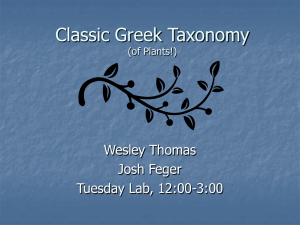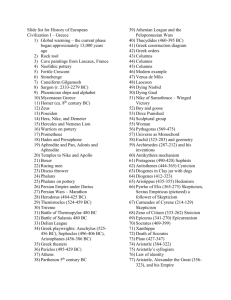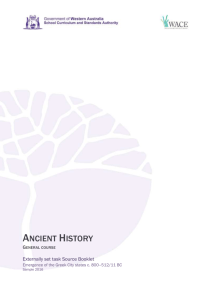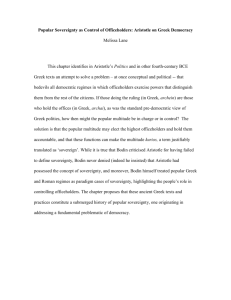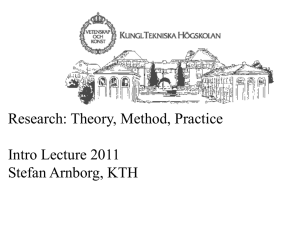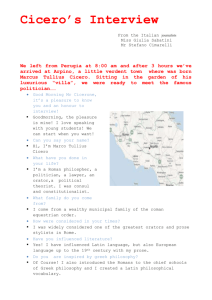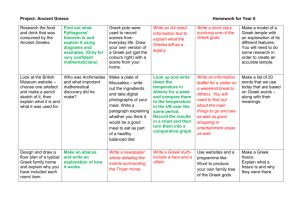greek-reading-seminar-2015
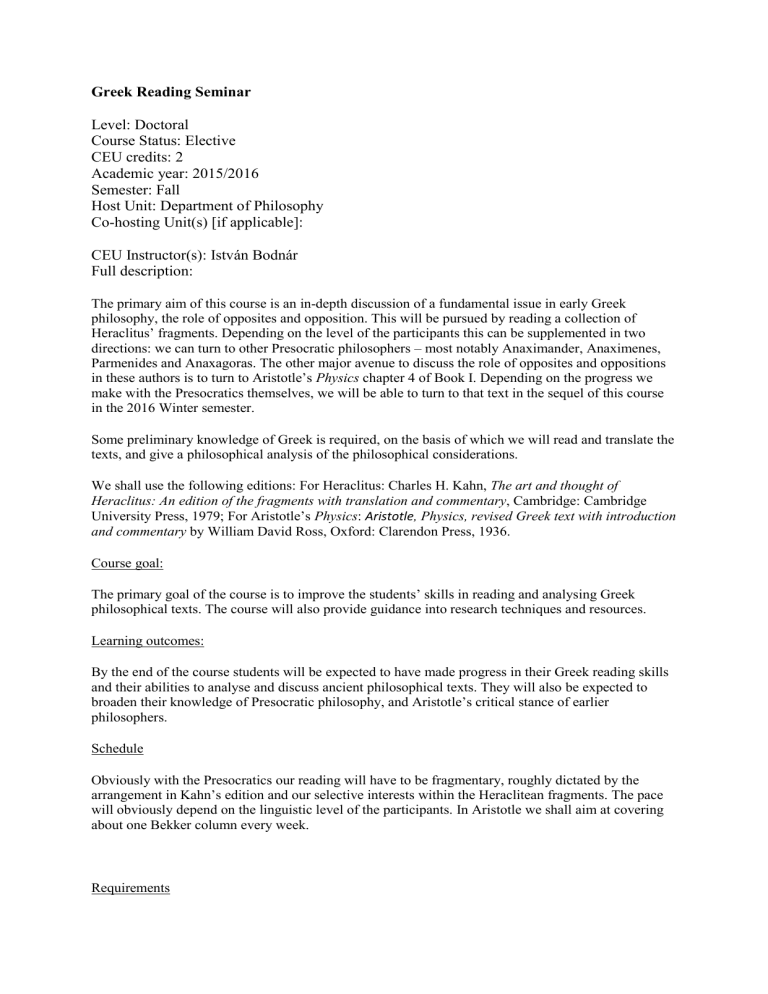
Greek Reading Seminar
Level: Doctoral
Course Status: Elective
CEU credits: 2
Academic year: 2015/2016
Semester: Fall
Host Unit: Department of Philosophy
Co-hosting Unit(s) [if applicable]:
CEU Instructor(s): István Bodnár
Full description:
The primary aim of this course is an in-depth discussion of a fundamental issue in early Greek philosophy, the role of opposites and opposition. This will be pursued by reading a collection of
Heraclitus’ fragments. Depending on the level of the participants this can be supplemented in two directions: we can turn to other Presocratic philosophers – most notably Anaximander, Anaximenes,
Parmenides and Anaxagoras. The other major avenue to discuss the role of opposites and oppositions in these authors is to turn to Aristotle’s Physics chapter 4 of Book I. Depending on the progress we make with the Presocratics themselves, we will be able to turn to that text in the sequel of this course in the 2016 Winter semester.
Some preliminary knowledge of Greek is required, on the basis of which we will read and translate the texts, and give a philosophical analysis of the philosophical considerations.
We shall use the following editions: For Heraclitus: Charles H. Kahn, The art and thought of
Heraclitus: An edition of the fragments with translation and commentary , Cambridge: Cambridge
University Press, 1979; For Aristotle’s
Physics : Aristotle , Physics, revised Greek text with introduction and commentary by William David Ross, Oxford: Clarendon Press, 1936.
Course goal:
The primary goal of the course is to improve the students’ skills in reading and analysing Greek philosophical texts. The course will also provide guidance into research techniques and resources.
Learning outcomes:
By the end of the course students will be expected to have made progress in their Greek reading skills and their abilities to analyse and discuss ancient philosophical texts. They will also be expected to broaden their knowledge of Presocratic philosophy, and Aristotle’s critical stance of earlier philosophers.
Schedule
Obviously with the Presocratics our reading will have to be fragmentary, roughly dictated by the arrangement in Kahn’s edition and our selective interests within the Heraclitean fragments. The pace will obviously depend on the linguistic level of the participants. In Aristotle we shall aim at covering about one Bekker column every week.
Requirements
• regular attendance
• to prepare the text for each session
• active participation in the discussions
Assessment:
• level of preparation (taking into account the level of knowledge of Greek at the beginning of the term) 70 %
• participation in the discussions 30 %
